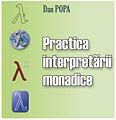Books and tutorials
Books
See the complete list of books.
Journals
- The Monad.Reader is an electronic magazine about all things Haskell. It is less formal than journal, but more enduring than a wiki-page or blog post. There have been a wide variety of articles, including: exciting code fragments, intriguing puzzles, book reviews, tutorials, and even half-baked research ideas.
- Practice of Functional Programming is a Russian electronic magazine devoted to promoting functional programming, with both theoretical and explanatory articles as well as practical ones (FP success stories). Much of the material is often related to Haskell.
Tutorials
See Tutorials.
Foundations
Some books and links listed here can be found also in the articles of Theoretical foundations category
- see Mathematics
- or browse Theoretical foundations among Special:Categories.
- Practical Foundations of Mathematics
- Paul Taylor. Cambridge University Press, ISBN: 0-521-63107-6, xii+576 pages, September 2000.
- Toposes, Triples and Theories
- Michael Barr and Charles Wells. The revised version of their formerly Springer Verlag published book is online for free download. Note that they use the name triple instead of monad.
- Categories and Computer Science
- R. F. C. Walters. Cambridge Computer Science Texts, 1991, 176 pages. ISBN 0-52141-997-2 (USD $95.00 (hardcover), USD $34.99 (paperback)).
- Here, Category Theory is developed in a straightforward way, and is enriched with many examples from computer science.
- Where do I begin? A problem solving approach to teaching functional programming
- Simon Thompson, First International Conference on Declarative Programming Languages in Education
- Many students take easily to functional programming whilst others experience difficulties of one sort or another. The work reported here is the result of attempts to advise students on how to use problem solving ideas to help them design as develop programs.
Research papers
- Haskell research papers are collected on haskell.org
- Also, an online bibliography of Haskell research at ReadScheme.org
Formal Languages and Automata, Grammars and Parsing using Haskell
- Grammars and Parsing by Johan Jeuring and Doaitse Swierstra is available:
- Download and take a look to the following:
- 3.1 The type 'Parser' pp 47
- 3.2 Elementary parsers pp 49
- 3.3 Parser combinator pp 52
- 5.1 Finite state automata pp 85
External links
- Functional Programming Bibliography
- read scheme (bibliography)
- Researchr (bibliography)
























![Capitole de manuale despre programare functionala în Haskell (cu Hugs) [on-line]](/wikiupload/thumb/0/0f/Cartea-lui-Dan-Popa-coperta-1.png/89px-Cartea-lui-Dan-Popa-coperta-1.png)

